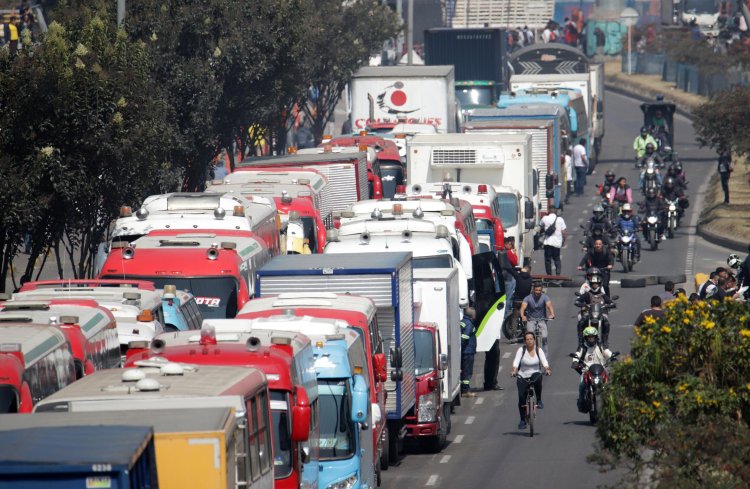Bogota Protests Escalate as Diesel Hike Reversed

Police in the Colombian capital Bogota cleared some roads using tear gas and tow trucks as protests – characterized by roadblocks - continued into their fourth day.
Colombia's decision to reverse a diesel price hike that sparked a strike by truckers could adversely affect public finances, analysts said, as majority state-owned energy company Ecopetrol said it would begin shutting off some operations amid the unrest.
Finance Minister Ricardo Bonilla said the government reversed its decision to increase the price of diesel by 1,904 pesos (45 cents) per gallon, starting this month.
The government is now proposing increases of 200 pesos (4 cents) per month from September to December, while strike leaders are pushing for increases of 100 pesos (2 cents) per month.
“We know how to identify what in English is called a lockout, a business strike, which has murky economic and political interests behind a social movement, as happened with the social outburst during the previous government. But social movements always have fair demands,” Colombia President, Gustavo Pedtro said.
Colombia’s left-wing President Gustavo Petro is on a drive to phase out subsidies that have kept fuel prices frozen since the Covid-19 pandemic.
State oil company Ecopetrol suspended activities at five oil fields as blockades interrupted operations.
The diesel price hike, which came into effect, affects the cost of shipping most goods in a country where 90 percent of commodities are transported by road.
The government argues that the new diesel price is still one of the cheapest in the region.
Petro, the country’s first-ever leftist president, has accused “powerful” figures in the business community of being behind the protests and insisted the fuel subsidies were fiscally unsustainable.
Authorities and analysts warned the strike threatens shortages of food and other goods, causing an increase in prices, which would lead to higher-than-expected inflation.















